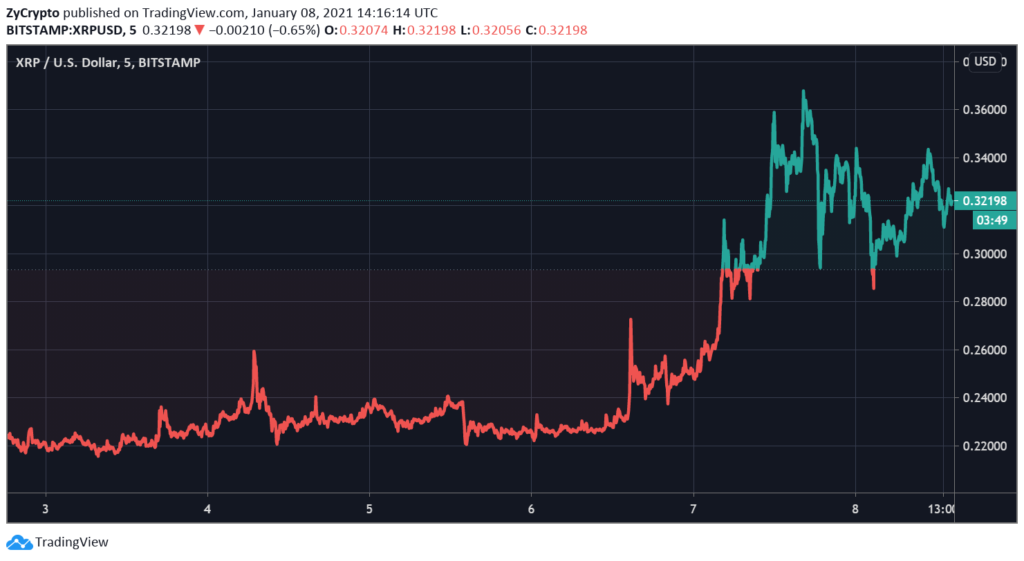
Ripple has been in headlines lately, and not for good news. Apparently, the blockchain company has been sued by the US SEC. When this news broke, many wanted to know why the company didn’t take prior measures to avoid the now very publicized lawsuit. Ripple’s CEO took to Twitter to clear the air.
In the tweet, Brad Garlinghouse said that Ripple had tried hard to engage the SEC and settle the matter out of court before the case was filed. However, it seems that those efforts didn’t bear fruits. However, he stressed that the company will still continue to seek a settlement with the incoming new administration.
The Lawsuit
Ripple is the issuer of XRP, a popular and large crypto by market cap. XRP currently sits at position 4 in the charts with a market cap totaling over $14.3 billion. Via the suit, the SEC accuses Ripple of transacting with an unregistered security whose proceeds the company has used to support other entities for the last 7 years. In that case, the SEC takes XRP as the said security. Ripple is said to have transacted XRP worth upward of $1.3 billion.
Since the charges were filed in late December 2020, the crypto’s price has been greatly impacted by the lawsuit. It lost around 50% of its price valuation following the unfavorable news.
 XRPUSD Chart By TradingView
XRPUSD Chart By TradingView
Not Just Ripple
Ripple isn’t the first crypto and blockchain-focused entity to attract SEC’s wrath. In the recent past, SEC took on Kik and Telegram, two entities that were planning to launch digital coins. The endeavor was a success for SEC as the two sought to settle the issues early enough. Telegram subsequently decided to ditch its plans to launch the Gram token.
Back in 2019, SEC had another spat with Block.one, a blockchain company that created EOS. The issues involved were quickly ironed out and Block.one paid a fine before EOS could be allowed to trade in the crypto market.
Lawful Incentives
However, in the case of Ripple, CEO Brad Garlinghouse insists that the company did nothing wrong in providing incentives to startups.
In his opinion, as he put it in his Twitter post, the incentives were legal. He went on to bash the current governance system, accusing it of preceding over chaotic regulatory policies that lack clarity.
Did Ripple Pay Exchanges?
When asked whether Ripple paid off exchanges to get listed on their platforms, CEO Brad didn’t exactly answer directly, instead, he pointed out that XRP trades in an independent market, and no one can dictate where it gets listed or who owns it.